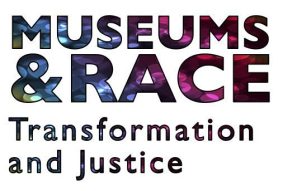We stand on the shoulders of those who came before us. In 2015, a covening of museum practitioner-activists diligently established a foundation for us to build a sustainable movement using a non-hierarchical approach. Evolving from where we began, we aim to address and respond to racism in museums–and work for change–in real time. We embrace the practice of transformation toward actionable progress for antiracist belonging.
Statement of Purpose
We are a volunteer coalition of museum professionals who are interested in effecting radical antiracist change in our field. We believe that the persistent and pervasive presence of structural racism in our institutions is at the heart of the museum field’s failure to diversify its boards, staff, collections, and members and visitors, despite generations of effort. We also believe that understanding and recognizing entrenched racism is a difficult and potentially contentious undertaking— a necessary one if America’s museums are to serve its diverse peoples.
This is a living document which also reflects the iterative nature of our work.
Our purpose is to create change by gathering a multigenerational group of museum professionals to:
1. Listen to the lived experiences, data, and insights of museum colleagues —especially those of color—and center their experiences.
- Collaborate with our colleagues to adopt institutional policies through a new philosophical stance on the role of the museum that is both morally and culturally responsive and grounded in empathy, respect, and inclusion.
2. Create a framework for how museums should address their responsibility for fair and inclusive staffing, collections, interpretation, and equality of access to their resources.
This framework adopts a vocabulary and a set of theories which are required for authentic museum discourse:
- Oppression: identifying the complex – and too often unacknowledged – ways in which systemic structural norms influence decision-making so that cultural institutions present themselves in ways that are unacceptable and exclusionary to many.
- Privilege: pervasive assumptions of whiteness and wealth, which are counter to inclusive practices and, in fact, perpetuate white cultural dominance.
- Intersectionality: understanding how race intersects with gender, social justice, class, and socioeconomic status.
